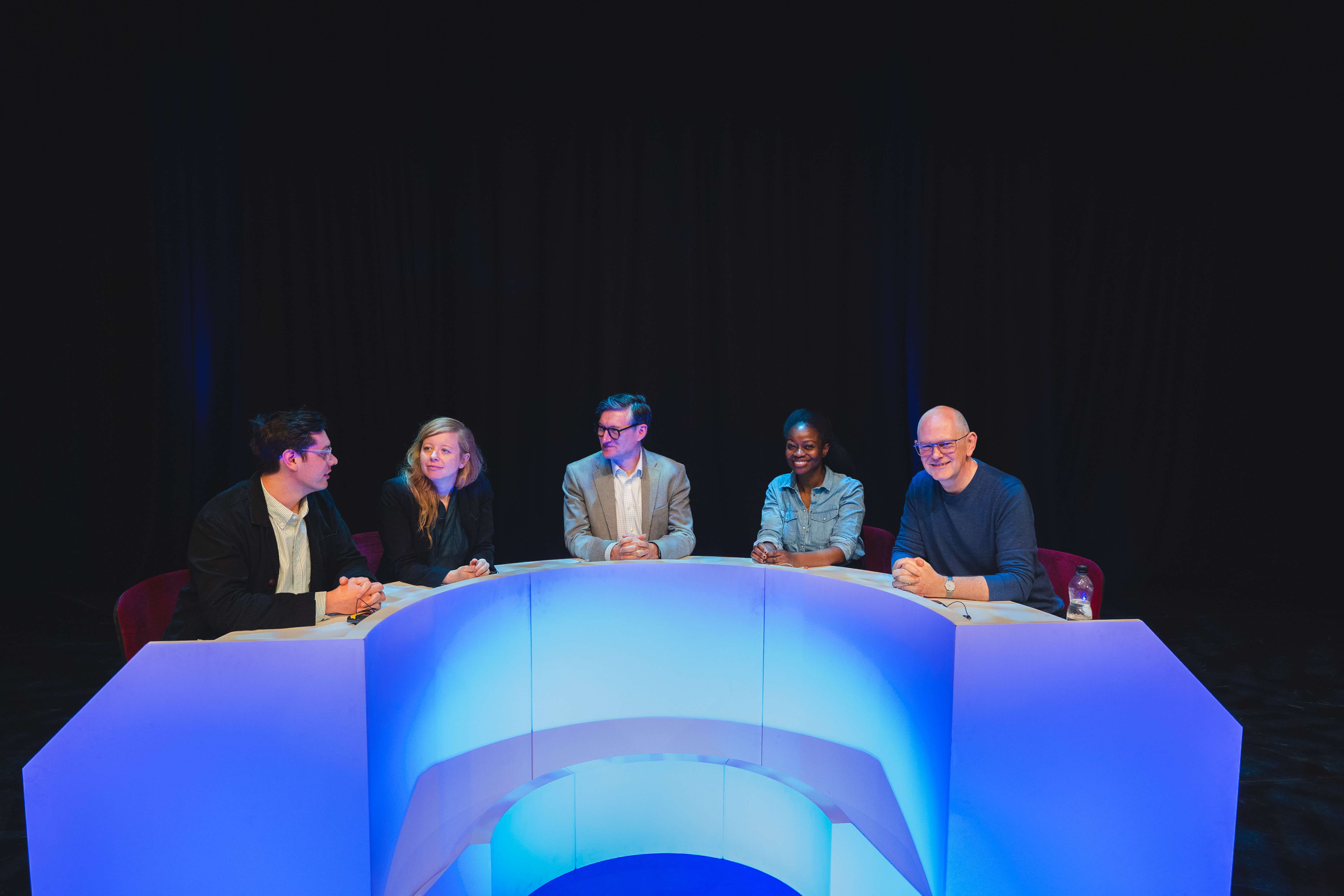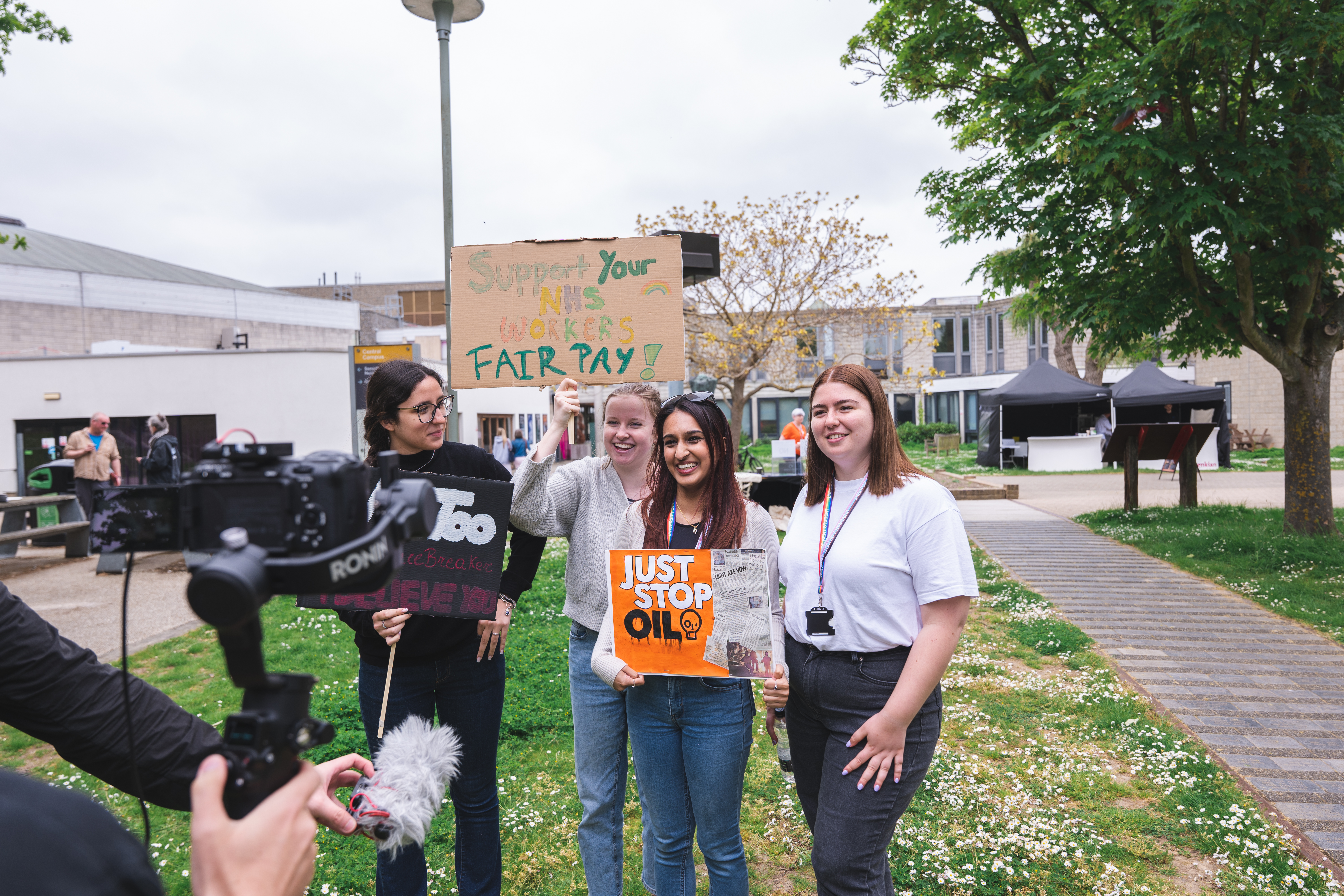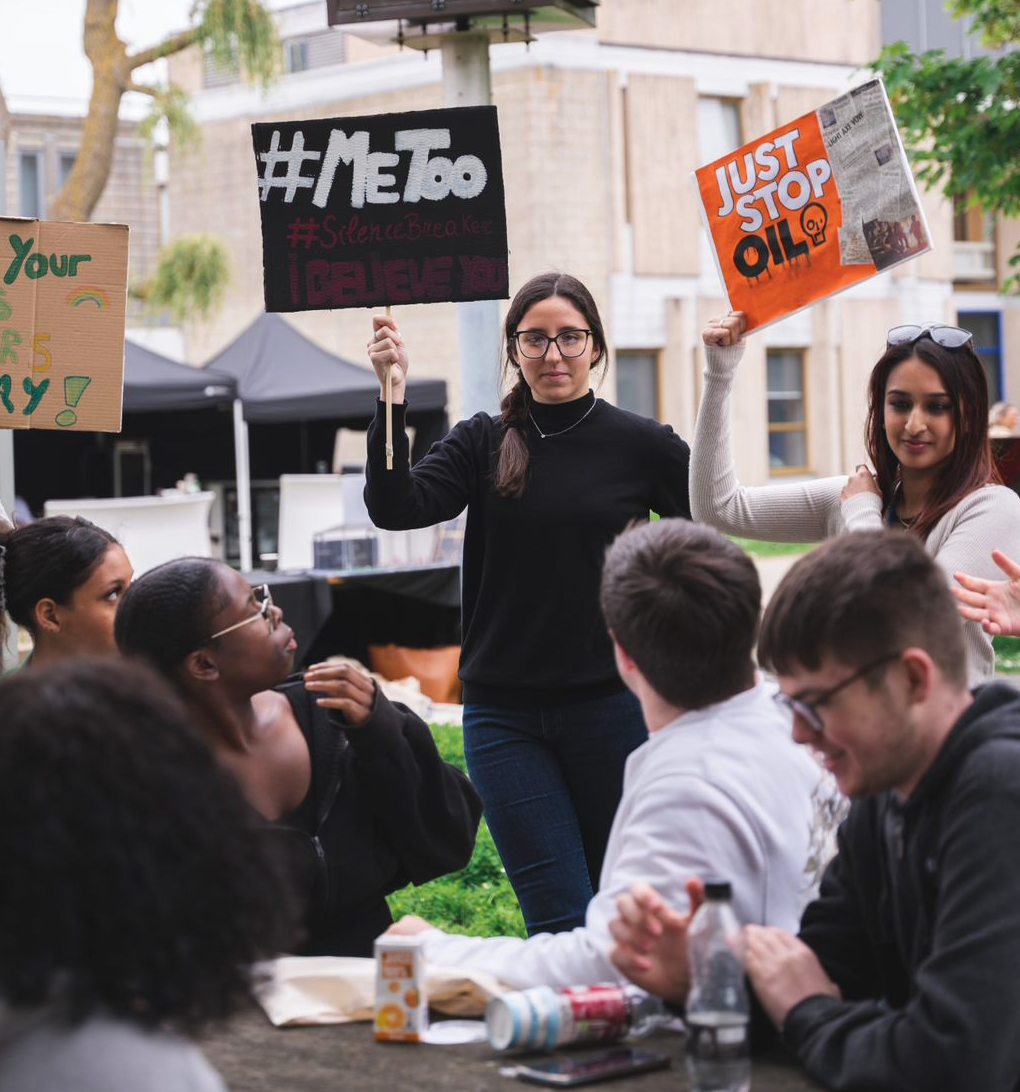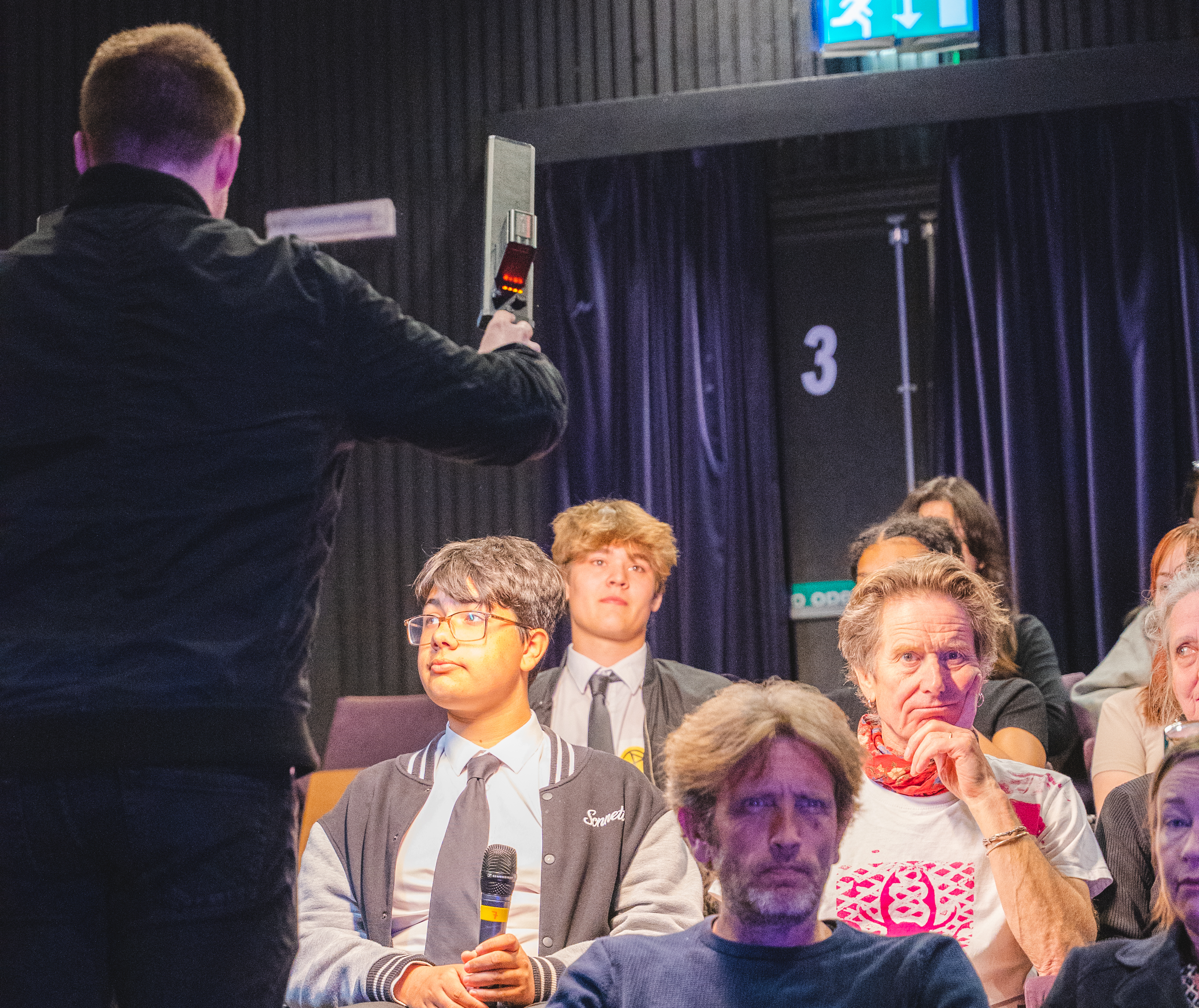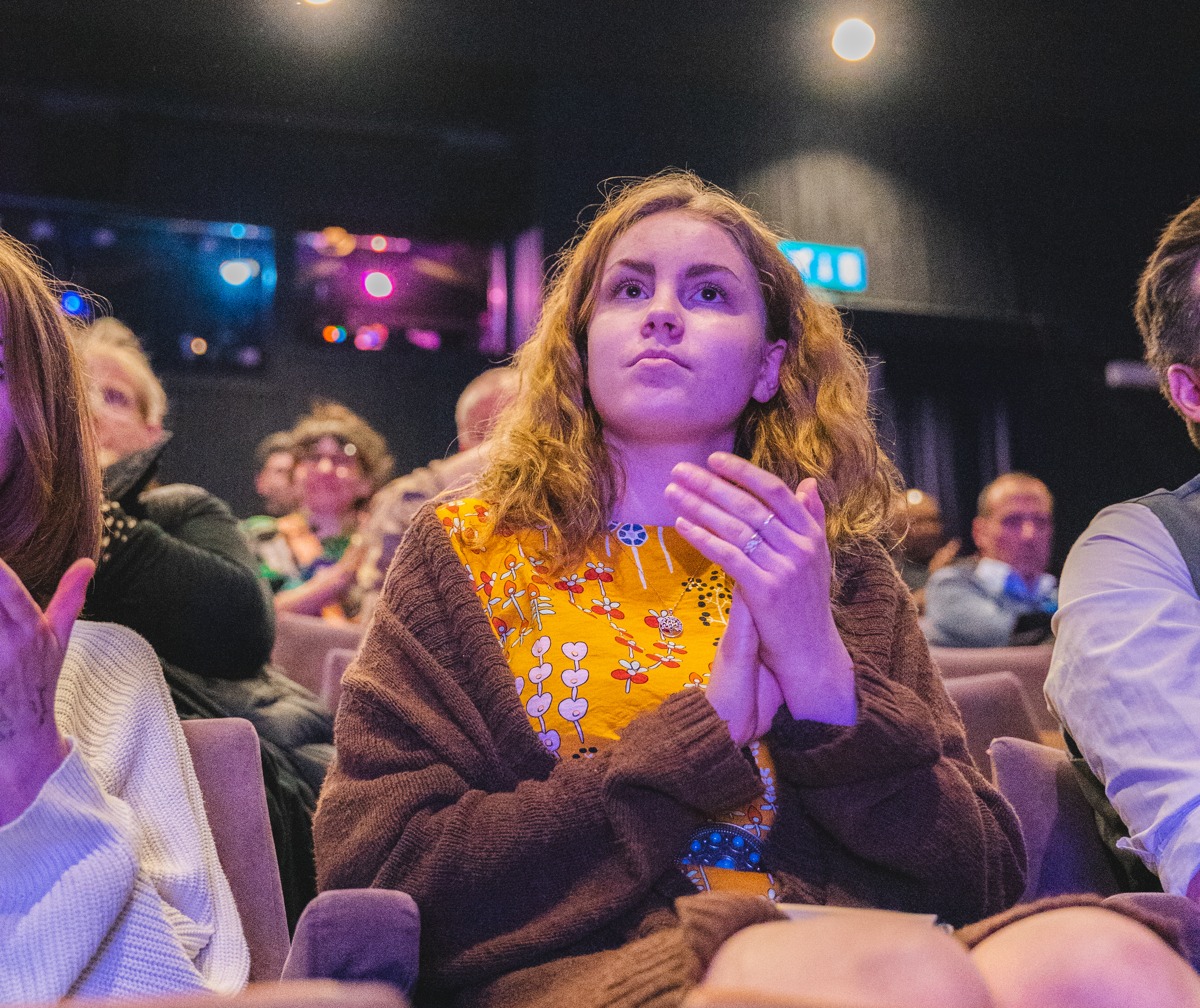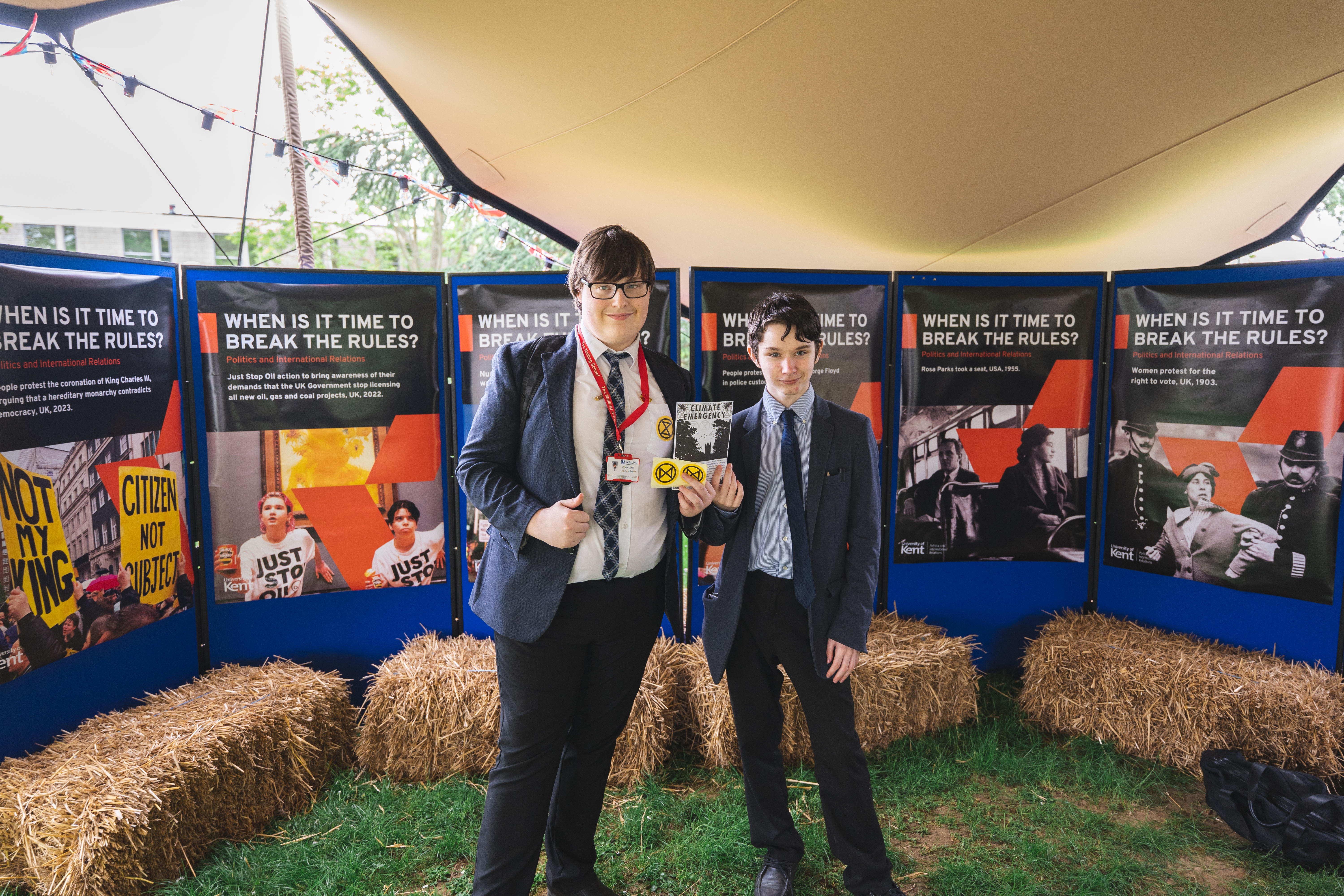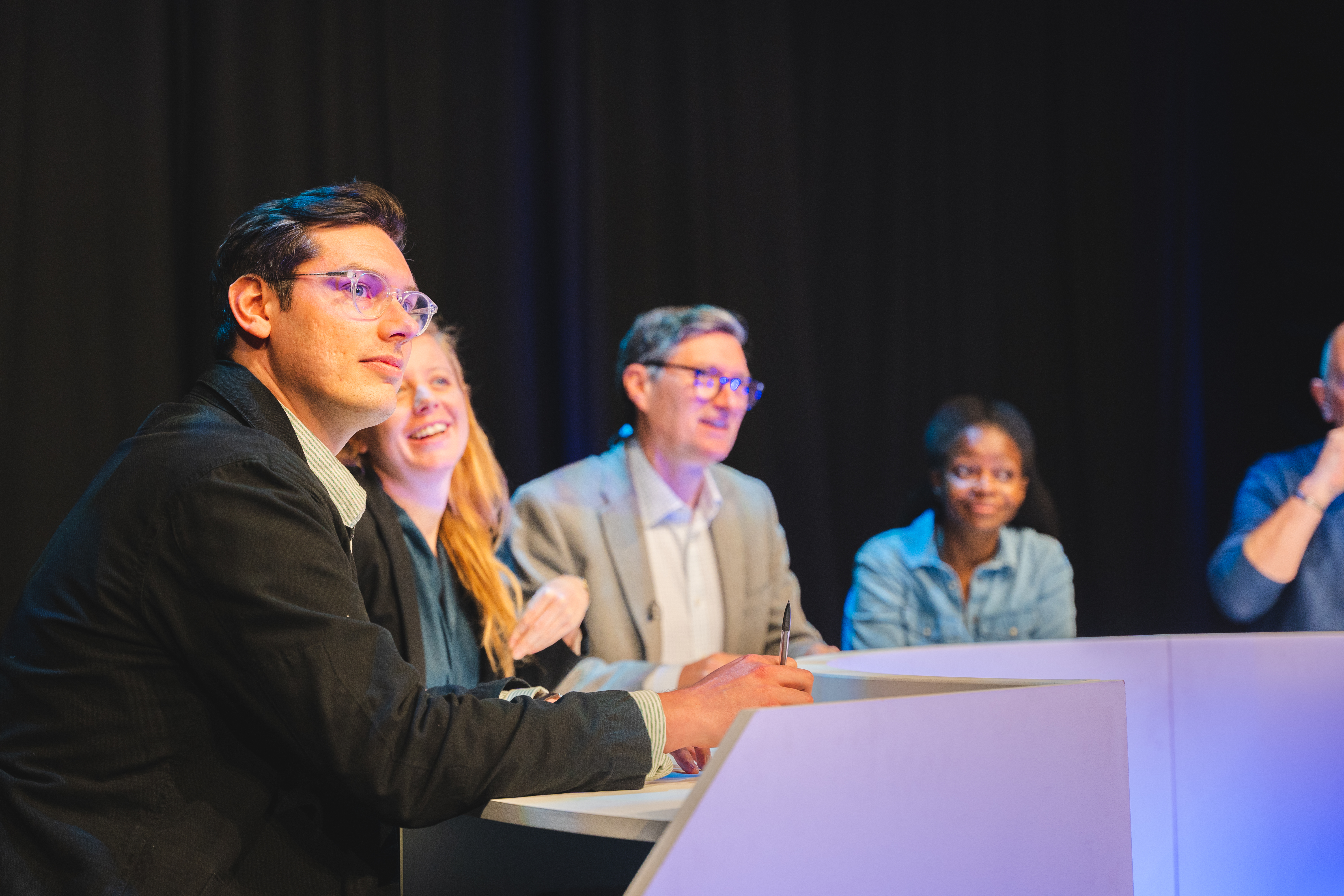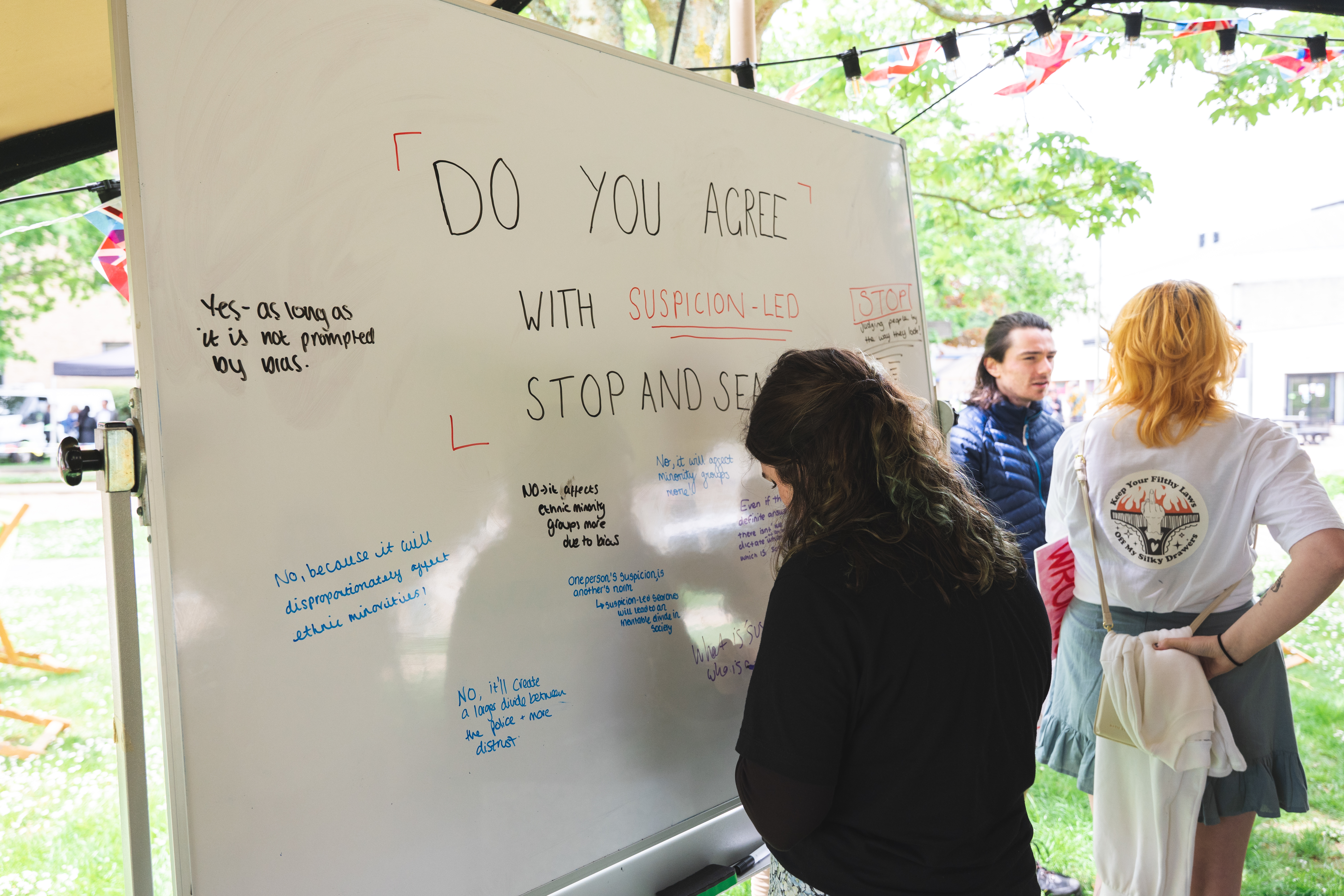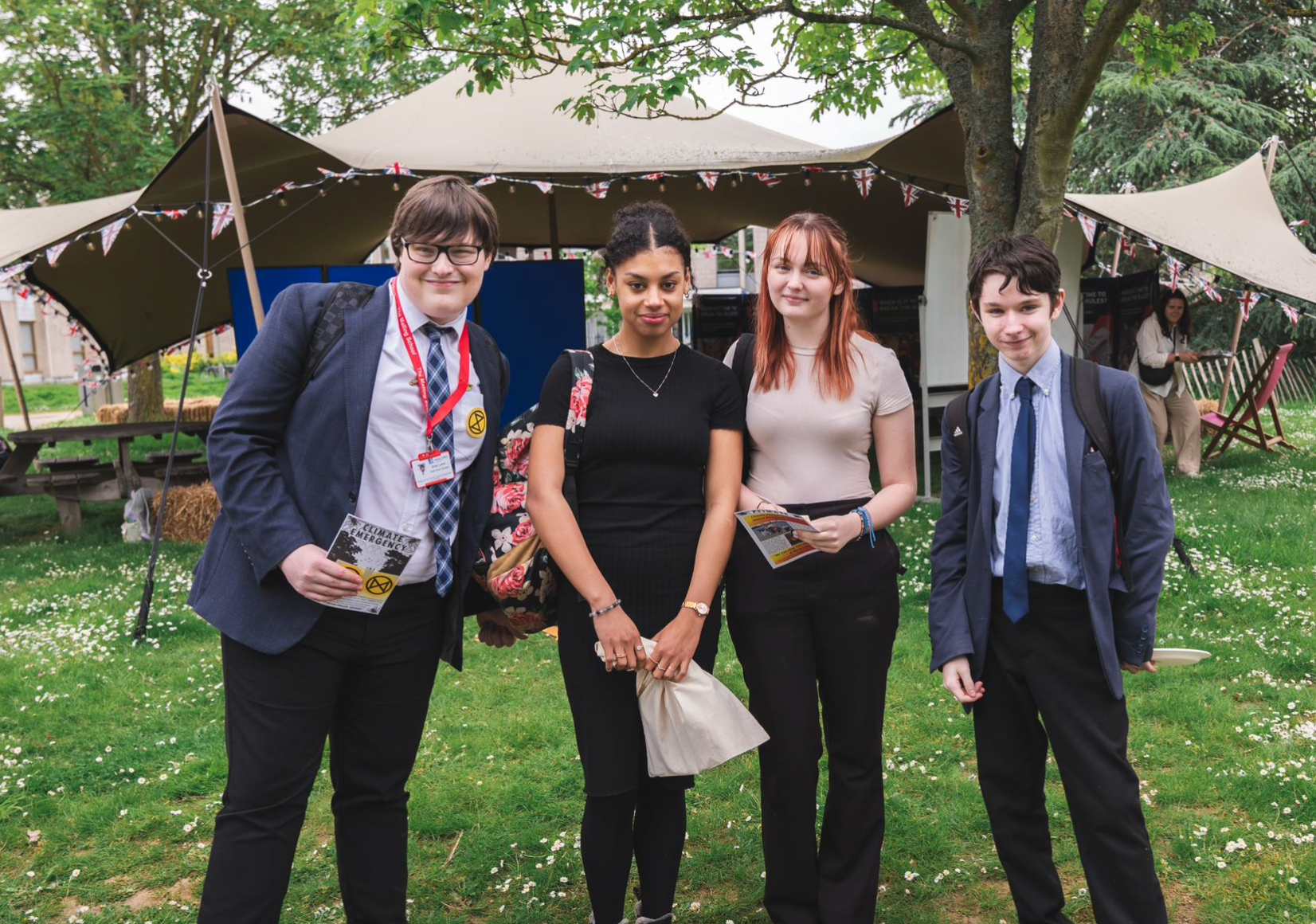
The School of Politics and International Relations recently invited local sixth-form students to discuss themes of politics, power and protest at a live televised panel event
Inspired by Russian protest punk group Pussy Riot’s visit to Kent in September 2022, we sought to uncover an answer to the challenging question, ‘when is it time to break the rules?’ we invited staff, students with local sixth-form students and their teachers, to discuss power and protest.
Students from Canterbury Academy, Cornwallis Academy and The West Malling School joined us during a live filming of a panel-style show, with Professor Richard Whitman chairing a panel that comprised of Dr Kuzi Zigomo, Dr Iain MacKenzie, Dr Nadine Ansorg and Dr Ben Turner. Discussion from the academics and questions from the audience centred around what it actually means to ‘break the rules’, if and when it should be okay to do so, recent Extinction Rebellion and Just Stop Oil protests, and whether healthy democracies can exist without protest.
‘We’re joined by world leading researchers to discuss protest, strikes, terrorism and activism – from Just Stop Oil to rail strikes, when is resistance justified?… When is it time to break the rules?… ‘ Whitman began going on to ask ‘Do you ever achieve change unless you protest for it?’ , ‘What are some important moments of protests that you think have changed society to be what it is today?’ and ‘Is our right to protest at risk?’.
‘A real, unique, opportunity to explore some of the key issues in a new, exciting and engaging way, that really caught the sixth formers’ interest’
The day involved significant interaction between academics, university students and school students, and attracted Extinction Rebellion and Just Stop Oil members, who engaged with the panel by asking the academics their perspectives on their protest methods, and what the legal implications of these methods should be.
Sixth-formers asked their own questions in response to the panel’s accessible, and timely exploration of power and protest, debating the ethics, motivations, and implications of both violent and non-violent protest and activism. One teacher remarked that the event was “a real, unique, opportunity to explore some of the key issues in a new, exciting and engaging way, that really caught the sixth formers’ interest.”
HSS Outreach Officer Gail Fawcett intentionally chose themes that spoke directly to the A Level Politics curriculum looking at global governance, human rights and environmental politics, as well as the wider curriculum of Key Stage 3 and 4 that charts the history of protest in the UK. ‘From Barons’ limiting the King’s power through the Magna Carta (1215), the Peasant’s Revolt -essentially the ‘cost of living’ crisis of 1381, Chartism, the Suffragettes, to more recent protests like #metoo, BLM as well as the recent strikes across the public sector.
‘We wanted to offer Six Form students an opportunity to extend their existing knowledge, drawing them in to the current conversations around the implications of the new stop and search laws, whether democracy can exist without protest and even who is doing the protesting, including the ‘grey haired’ activists making a stand and breaking stereotypes.’
Not only did this event sow the seeds for post A level school study, but students also got a chance to experience how a live panel event is recorded for television. Fawcett reflecting on the event, told us that ‘all of this, and the magic of the synergy of their questions to the panel, created something really special that they will remember. Giving them a taste of what the value, and relevance, of studying Politics and International Relations at the University of Kent might be.
‘I loved giving students the chance to have their say’ one of our panellists Dr Ben Turner concluded ‘It was a fantastic, interactive opportunity for sixth formers to engage with university life, as they heard answers to their questions from lecturers and had a chance to engage with current undergraduate students.’
‘We also learnt from them! I was particularly fascinated to learn what drives those students, and about how we can help their transition to university from their teachers. Our undergraduate students also found it was a great opportunity to see how political ideas can be discussed in a public, and not just academic, setting.’
Check out the Behind the Scenes on Tiktok or watch the full panel show here.





